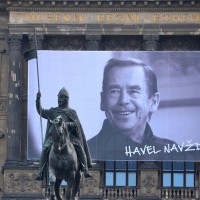
ACTA will not enter into force. Thousands of demonstrators opposed it. Polish Minister of Culture and National Heritage – Bogdan Zdrojewski – discussed Polish drive for liberty and assumed that “we may also take pride in the protests of Internet users”. Nevertheless, everyone wonders why people started to demonstrate against the agreement.
If nothing unexpected happens, the problem with the Anti-Counterfeiting Trade Agreement will be solved in the middle of the current year. The agreement will be rejected by the European Parliament as a result of widespread opposition or the Court of Justice of the European Union will declare it illegitimate. If ACTA is not enforced in the member states, it will became useless.
Present situation is a direct result of massive protests which took place between January and February in whole Europe. The demonstrations were especially huge in Poland. The Polish, who objected SOPA, diametrically opposed ACTA. It is believed that the revolt against ACTA was the largest one since the fall of communism. Poles held street demonstrations, blocked government websites and expressed their opinions here and there, e.g. on Internet forums. They managed to convince Polish Prime Minister. Donald Tusk not only rejected the agreement but also promised to dicuss the issue with the members of the European People’s Party as well as the leaders of other member states. It can be safely concluded that the situation resembles the uproar around Polish list of forbidden websites or European patents on software.
Contrary to the previous opinion of public relation specialists employed by the Civic Platform, it turned out that the Polish are concerned mainly about copyrights. But the question is: why?
The view of professor Wojciech Cellary from Poznan University of Economics is the most controversial. During an interview to Gazeta Wyborczahe claimed that “although young people may not be aware of this, their revolt is caused by a futile attempt to live in a country with well-educated society and economy which is not supported by smart workers”.
The scholar thinks that the protests were launched by unemployed graduates who are not likely to pay for various data available on the Internet. It leads to a situation in which entrepreneurs do not have financial means to employ them. This seems like vicious circle and ACTA is the only solution to the problem.
The opinion expressed by Polish writer – Piotr Czerski – is the most popular. He is the author of the catchphrase We, the devotees of the Internet. Czerski admits that the fondness for Internet is characteristic of people born between 1970 and 1990. The writer claims that “We used to meet new friends, quarrel, prepare cheat sheets, organize parties, fall in love and end our relationships when surfing the Internet”.
Czerski thinks that the Internet changed the lifestyle of the younger generation. The sources of information and the means of processing data vary considerably from the previous ones. Young people focus on different issues. The ways of participating in cultural events also evolved. These factors influenced the attitude towards politics. The uproar around ACTA was caused by a lack of confidence in the government. The writer concludes that “Maybe we have not named it so far, maybe we are not aware of this, but what we need is a real democracy”.

According to another idea, which was popular especially at the beginning of the demonstrations, we deal with two extremes: the real world and virtual reality. Rules valid in virtual reality vary considerably from those applied to the real life. Digital copies cannot be compared to theft. Having taken these assumptions into consideration, the Internet can be understood as the network of complete freedom. Such liberty is the only thing we should struggle for. It explains why society do not protest against high prices of petrol or the unemployment.
In my opinion, all these views include a grain of truth. Richard Sennett published the theory on the fall of public man in 1977. Four years before Piotr Czerski was born. People used to withdraw from public life and focus on private problems even in that times. The Internet just increased such phenomena.
Czerski claims that “we means many of us or some of us”, but I think that the pronoun can be understood as we, young and well-educated people from big cities or we, qualified office workers who do not have any problems with making ends meet.
Such young people can create new and more attractive images of themselves. They strive to attract attention and show full potential by using Twitter and writing blogs. It helps them to popularize culture and become a crucial part of it. They add hyperlinks which point to their favourite songs. They watch TV series recommended by friends in order to express personal opinion afterwards.
One may easily assume that such young people spread culture illegally. They have no scruples about breaking copyrights. If ACTA was ratified, Polish government would struggle against the illegal spread of culture. Nevertheless, the abovementioned young people would not be able to express themselves then. They would feel offended. They would not forgive Polish government.
Translation: Aleksandra Kozłowska
























